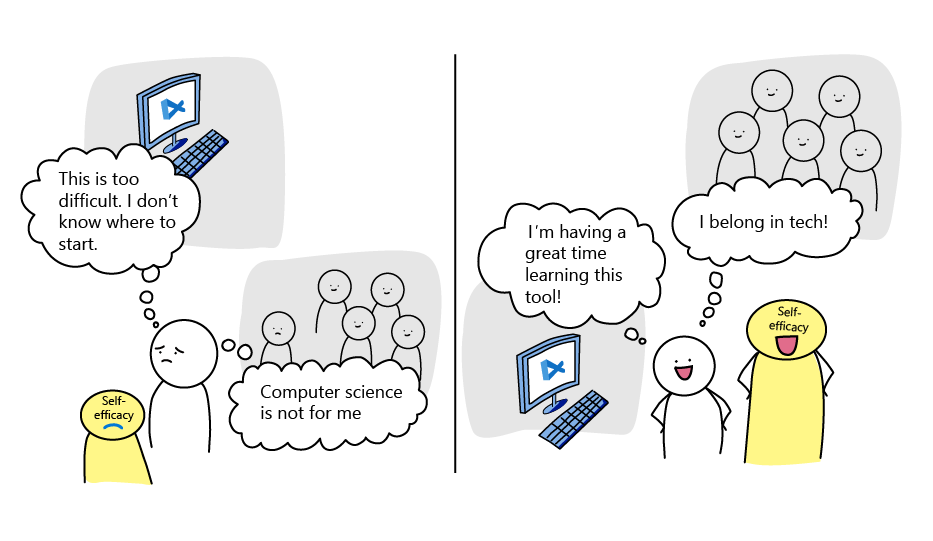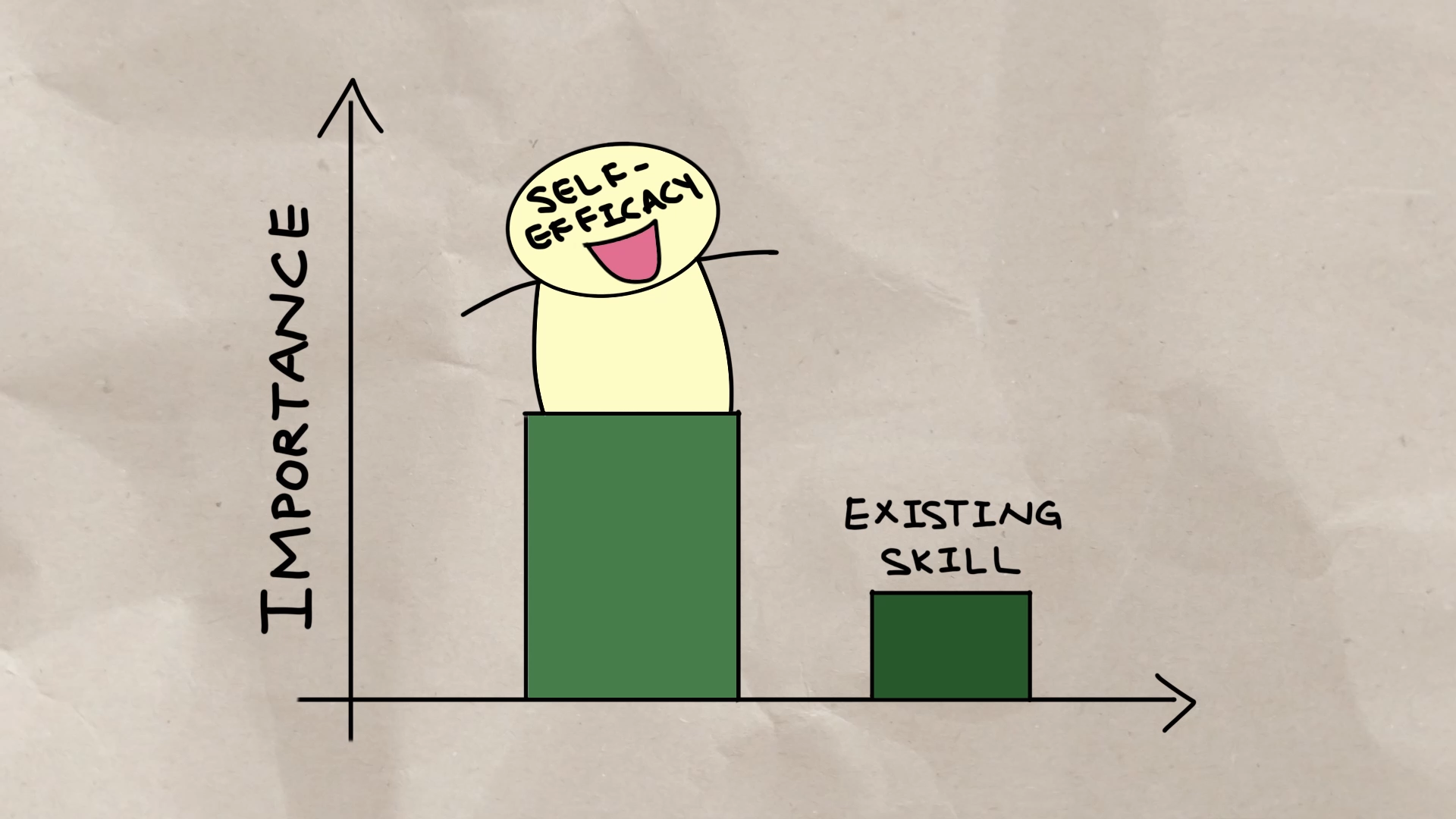Explore the concept of self-efficacy
You know that your team has great communication skills, but they're questioning these skills because they lack self-efficacy. How can you help resolve this problem? You can start by studying the concept of self-efficacy and its importance in creating successful outcomes in computer science.
What is self-efficacy?
Self-efficacy is an idea that lies at the heart of the question, "How confident are you in your ability to do well?" It's the belief in your own ability to succeed in a particular task, subject, or area. Self-efficacy is an important tool for learners and also for mentors, managers, leaders, and instructors. Research indicates that self-efficacy is one of the most important influences in your ability to persist in learning and problem solving.
In this unit, you learn about self-efficacy and its role in achieving successful outcomes. For an introduction to this important skill, review the following short video.
Reflection
After you review the video, take a few minutes to think about or note your answers to the following questions:
- Which parts of the video resonated the most with you? Why?
- Are there areas in which you lack self-efficacy?
- Have you ever felt like you couldn't accomplish a task, even if it's something you've done before?
Examine the relation between self-efficacy and outcomes
Have you ever questioned your ability to do something, even if you're skilled at it? If you have, you were probably feeling the effects of low self-efficacy.
Self-efficacy is strongly linked to the success of your endeavors, whether you're debugging code, working to meet a tight deadline, or learning to communicate with a new team. Even if you're highly competent in something, your outcomes largely depend on your confidence in your ability to perform successfully. In many cases, your self-efficacy in a task can be a bigger success factor than your ability to do that task.
How low self-efficacy hinders your prospects
When you lack self-efficacy in a task or area, you doubt your ability to be successful at it. You approach tasks with apprehension and a lack of confidence. If you don't believe you can do something well, you try to avoid doing it. You tell yourself that you're not good at it and your chances of success are low.
Negative self-talk that stems from low self-efficacy:
- Stops you from putting all your effort into a task.
- Reduces your motivation to start a task.
- Makes you hesitant to learn more about it.
- Causes you to avoid opportunities to practice getting better at it.
If you avoid a task or give up easily because you don't believe you can succeed, you stop practicing. As a result, you don't get better at it.

How high self-efficacy improves your prospects
In contrast, high self-efficacy improves your prospects of a successful outcome. When you have high self-efficacy, you believe that you can successfully accomplish the task at hand and persist through challenges. This belief makes you more interested in that task, and you engage better.
High self-efficacy makes you want to learn more about what you need to do and keeps you motivated as you do it. When you approach a task with high motivation and engagement, you tend to spend more time working at it and practicing. This effort improves your skills and your prospects for future projects and tasks.

Explore the importance of self-efficacy
Self-efficacy is a perception of your ability. This perception might be inaccurate but can have detrimental effects on your approach to challenges in a technical environment. For example, suppose you've been a part of several successful web development projects. Ideally, you should be confident in your ability to contribute to another web development project. However, low self-efficacy skews your perception and leads you to believe you can't be successful doing the same thing again. You might convince yourself that you're not competent enough or you were lucky with your past successes.

If you find yourself struggling with low self-efficacy, remember that programming requires learning. It's not an innate skill. It can be easy to avoid taking risks and think of your mistakes as evidence of low ability. You might feel overwhelmed by the discomfort of learning something new. Struggle, practice, challenge, and discomfort can be part of learning computer science.
When you're faced with a challenge, pause and remember that even the most experienced professionals make mistakes and fail. This understanding will help you:
- Change your perspective.
- Improve your self-efficacy levels.
- Approach challenges with enthusiasm and confidence.
Note
Remember from the video: Self-efficacy is often more important than any actual skill you might currently have.
